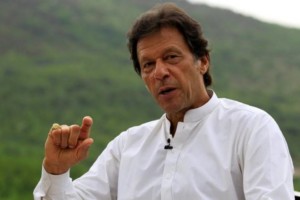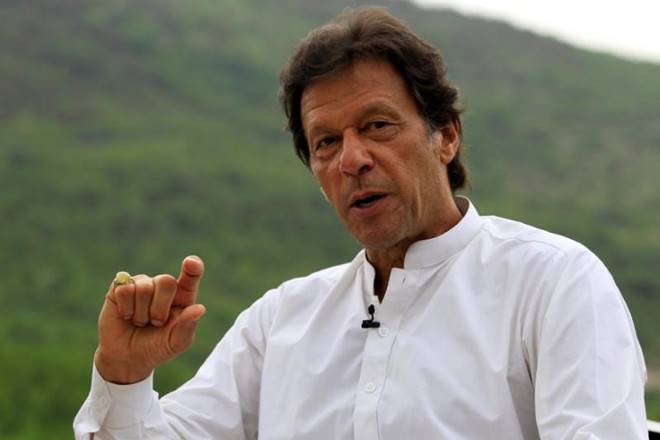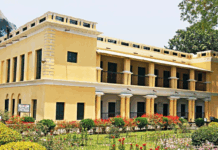 BEIJING/ISLAMABAD: China and Pakistan have rejected a media report that Prime Minister Imran Khan’s newly elected government wants to renegotiate the agreements reached under the Belt and Road Initiative (BRI), with Beijing saying Islamabad’s commitment to President Xi Jinping’s pet project is “unwavering”.
BEIJING/ISLAMABAD: China and Pakistan have rejected a media report that Prime Minister Imran Khan’s newly elected government wants to renegotiate the agreements reached under the Belt and Road Initiative (BRI), with Beijing saying Islamabad’s commitment to President Xi Jinping’s pet project is “unwavering”.
An article titled ‘Pakistan rethinks its role in Xi’s Belt and Road plan’ by the UK-based Financial Times on Sunday quoted Prime Minister’s Adviser on Commerce, Textile, Industry and Production, and Investment Abdul Razak Dawood as saying that Pakistan “should put everything on hold for a year so we can get our act together.”
In the article, which created furor as it came hours after Chinese Foreign Minister Wang Yi concluded his visit to Islamabad, Dawood was also reported to have said that the “Chinese companies received tax breaks, many breaks and have an undue advantage in Pakistan; this is one of the things we’re looking at because it’s not fair that Pakistan companies should be disadvantaged.”
Refuting the article, Chinese Foreign Ministry spokesman Geng Shuang told a media briefing in Beijing Tuesday that during Wang’s visit, the Pakistani side made it clear that the China-Pakistan Economic Corridor (CPEC) is a priority of Pakistan. “The Pakistan-China relations are unbreakable and Pakistani government’s commitment to CPEC is unwavering,” Geng said and referred to the denials by the Pakistan government.
The CPEC, a flagship project of the BRI launched in 2015, is a planned network of roads, railways and energy projects linking China’s resource-rich Xinjiang Uyghur Autonomous Region with Pakistan’s strategic Gwadar Port on the Arabian Sea.
In Islamabad, the Pakistan Foreign Office said Monday that during meetings with Wang, Pakistani leadership conveyed that the CPEC was a national priority for the government and “Pakistan remains committed to the successful implementation of CPEC.” It said that there was complete consensus on the future trajectory of the CPEC between Pakistan and China.
“The two sides agreed to work together towards implementation of the ongoing projects and agreed to expand CPEC to new areas of cooperation including socio-economic development; poverty alleviation, anti-corruption, agricultural cooperation and industrial development as per the needs and priorities of the government of Pakistan,” the Foreign Office said.
In a separate statement, Pakistan’s Ministry of Commerce and Textile said that the FT article is “based on a statement taken out of context.”The statement attributed to the Advisor to Prime Minister on Commerce and Textile (Dawood) have been taken out of context and distorted. Pakistan-China relations are impregnable and the government’s commitment to the CPEC is unwavering,” the ministry said.
Pakistan’s former interior Ahsan Iqbal had criticized the incumbent government’s reservations over the CPEC. While speaking to a TV news channel, he said that any such thoughts over CPEC were disappointing as China trusted Pakistan and invested billions of dollars when no one was ready to put in even 10 dollars in the country’s economy.
Prime Minister Khan, who was elected on a platform of anti-corruption and transparency, in the past, had criticized jailed former Prime Minister Nawaz Sharif for the lack of transparency and corruption in the CPEC projects. Khan has pledged to publish details of existing CPEC contracts whose details remained closely guarded secrets. He has established a nine-member committee to evaluate the CPEC projects and the committee is scheduled to meet for the first time this week, Dawood, who sits on the new committee, was quoted as saying in the FT report.
In Beijing, Geng said Tuesday that the aim of the nine-member committee to review the CPEC projects is to enhance exchanges with China to accelerate the CPEC and to “deliver more outcomes to the Pakistani people Instead of putting off the project”. Significantly, Geng said a third party can join the project, without naming any particular country.
“We think that the CPEC can accept the participation of a third party. I would like to emphasize that the BRI is open, inclusive, and transparent,” he said. While briefing the media on Wang’s visit, Geng had said Monday that both sides have decided to extend CPEC to western areas of Pakistan. Western provinces like Khyber Pakhtunkhwa and Balochistan were located along the borders of Afghanistan.
Wang had announced plans to extend the CPEC to Afghanistan during the first trilateral foreign ministers meeting held here in April this year. India has protested over the CPEC as it traversed through the Pakistan-occupied Kashmir. Apparently, China in a move to address the growing concerns over the viability of CPEC projects now plans to extend it to the western region to address the concerns of the new government and offered Afghanistan to join the project.
Geng sought to repudiate criticism of the BRI was causing debt trap for smaller countries. Stating that 130 countries and organizations have signed up for it, he said, “If the BRI was out of the geopolitical considerations like someone said, it would be faced with risks and challenges, and would cause traps and crisis, I think it would not have been welcomed, it would not have achieved so much progress and outcomes”.
“We welcome all like-minded countries to take part in the BRI, jointly promote regional connectivity, development, and prosperity so as to deliver benefits to people of all countries around the world,” he added. PTI







